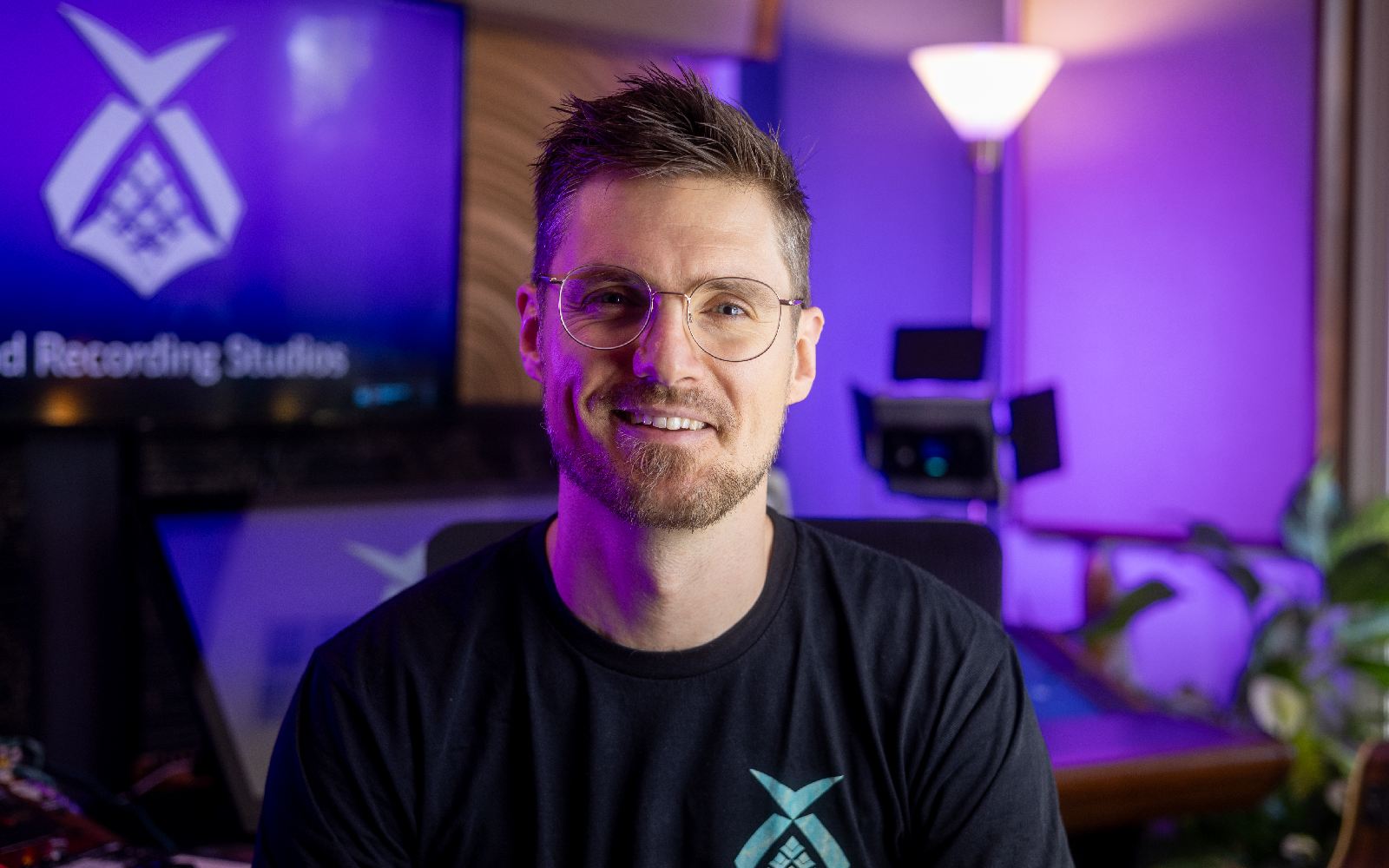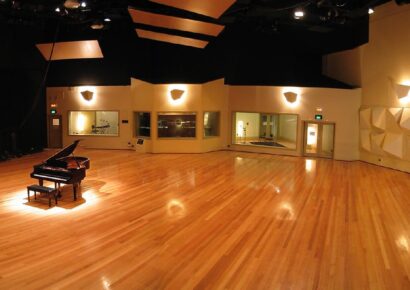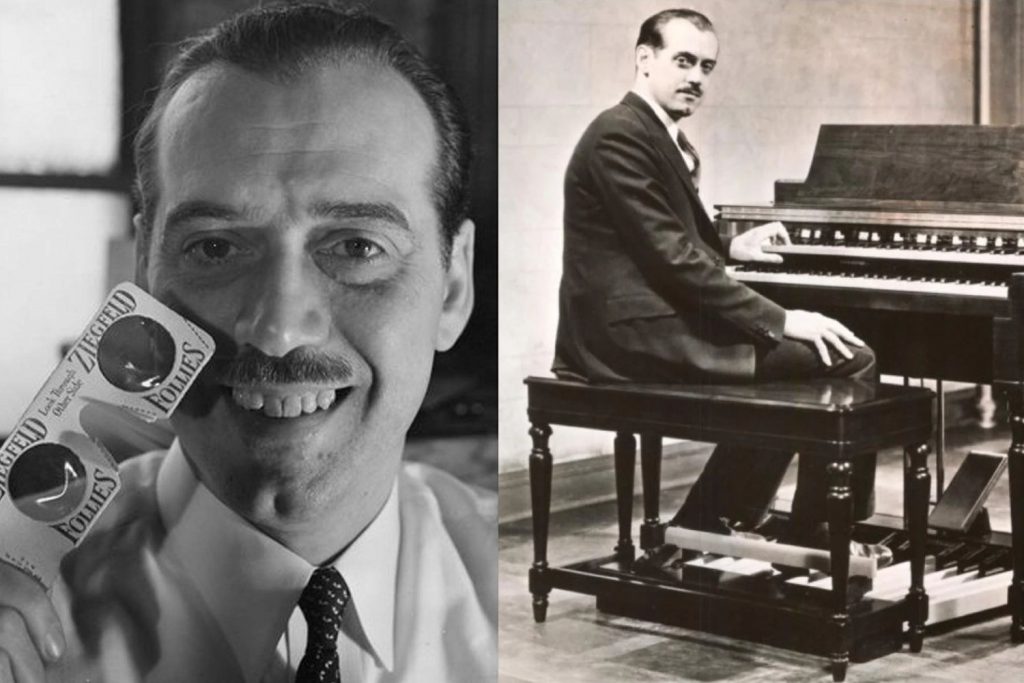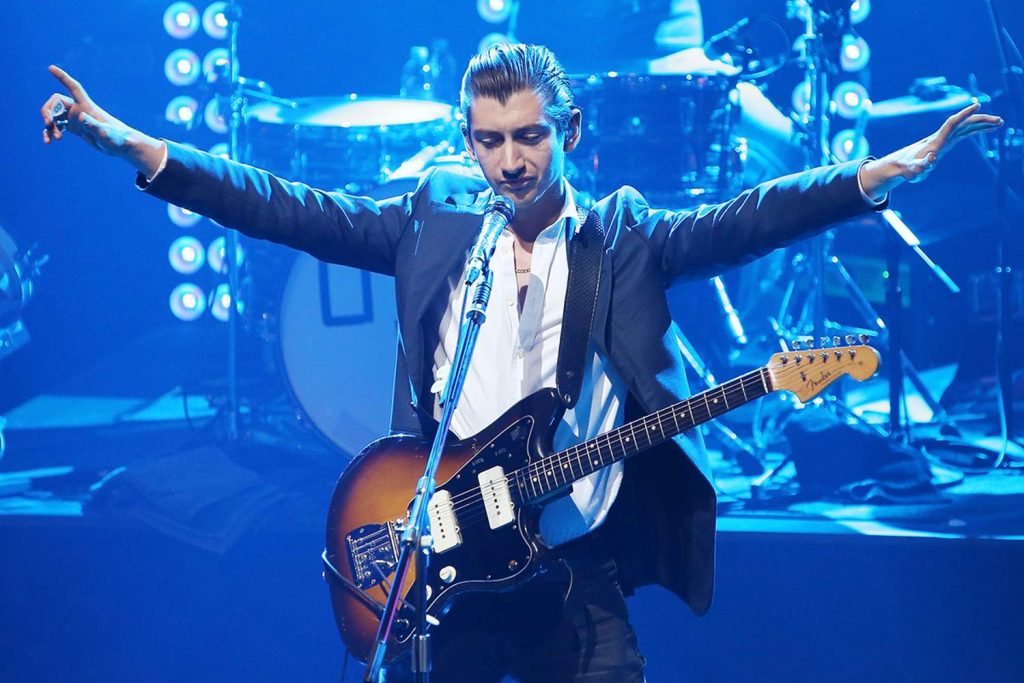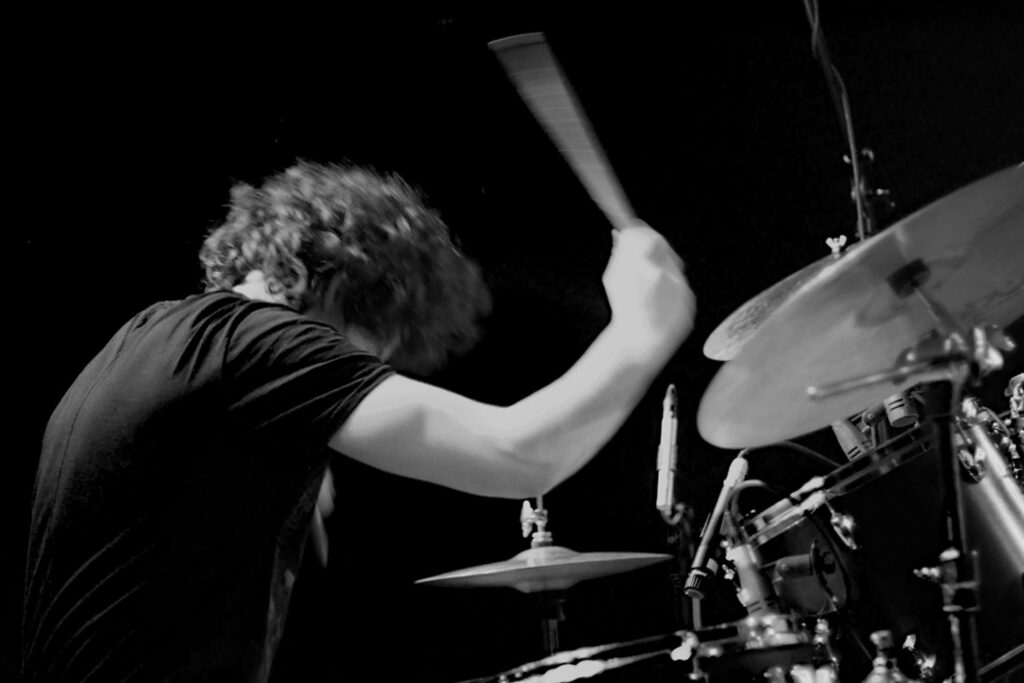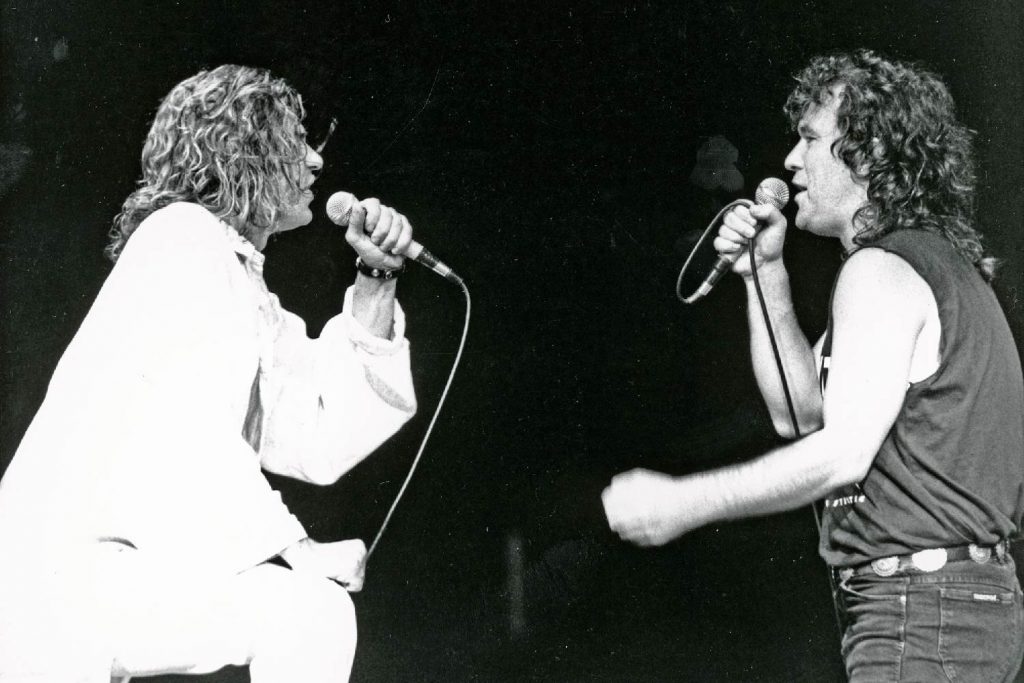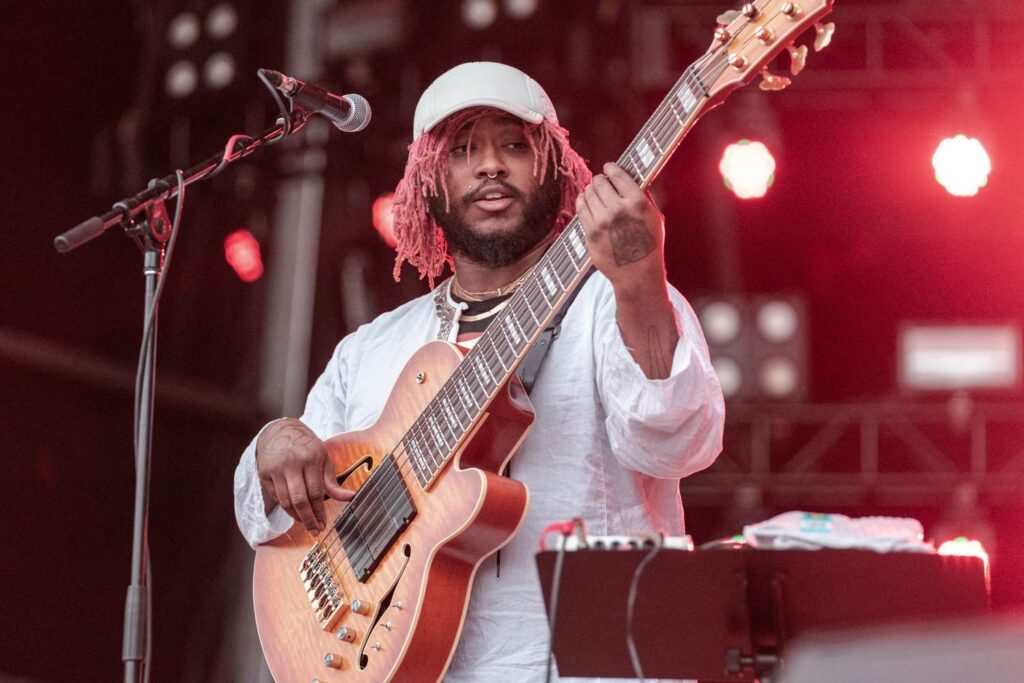Joseph, thanks for taking the time! Island really seems to focus on end to end production for artists of all levels, what do you enjoy about this kind of work?
Thanks so much for having me – great to be here! Yes, indeed we do. We specialise in full production projects where we help artists take their basic demos all the way through to radio-ready singles. This is predominantly in anything under the broad pop umbrella.
These projects are super collaborative – working closely with the artist from start to finish to develop and realise their vision.
Most of the time, I will end up writing and recording all of the instrumental parts myself, and then the artist will lay down the vocals. Occasionally though the artist will play some guitar or keys on the track along with singing.
Read all the latest features, lists and columns here.
I love being able to work so closely and collaboratively with the artists – bouncing ideas off of them as I’m laying down parts. It’s an extremely fun and fulfilling process for me as the producer to get inside the artist’s head to work out exactly what they’re after in terms of sounds, sonics, feelings and emotions that they want their song to exude.
When it’s an artist’s first time working on a full production project with us, it’s always fun to see how the process blows their mind a little as they realise what’s possible! For example, they may think it’s just not feasible to have a string section on their track, however, with the likes of Spitfire Audio and some arranging from me, before they know it they’ve got an epic string section bolstering their song.
Overall, it’s such an enjoyable process working from end to end with the artist to bring their visions and dreams to life!
Can you tell us a little bit about yourself and your journey as an engineer?
Sure! I’ve been involved in music basically my whole life – starting piano lessons at age 5, and starting to play professionally for functions and events at age 16. I also started playing guitar around age 12 and have picked up a bunch of other instruments since.
A little while after I started playing guitar, my older brother (who is also a sound engineer though predominantly has worked in live venues, such as Sydney Town Hall) lent me a little 4-track cassette recorder.
This blew my mind as a young musician who was starting to write songs – having the ability to actually hear back what the two guitars I’d written sounded like together. That’s probably what started the fascination with recording for me.
When I was 16 I bought a little Tascam interface so that I could starting multitrack recording onto the computer. For a few years I recorded my own music, and recorded bits and pieces with friends for fun.
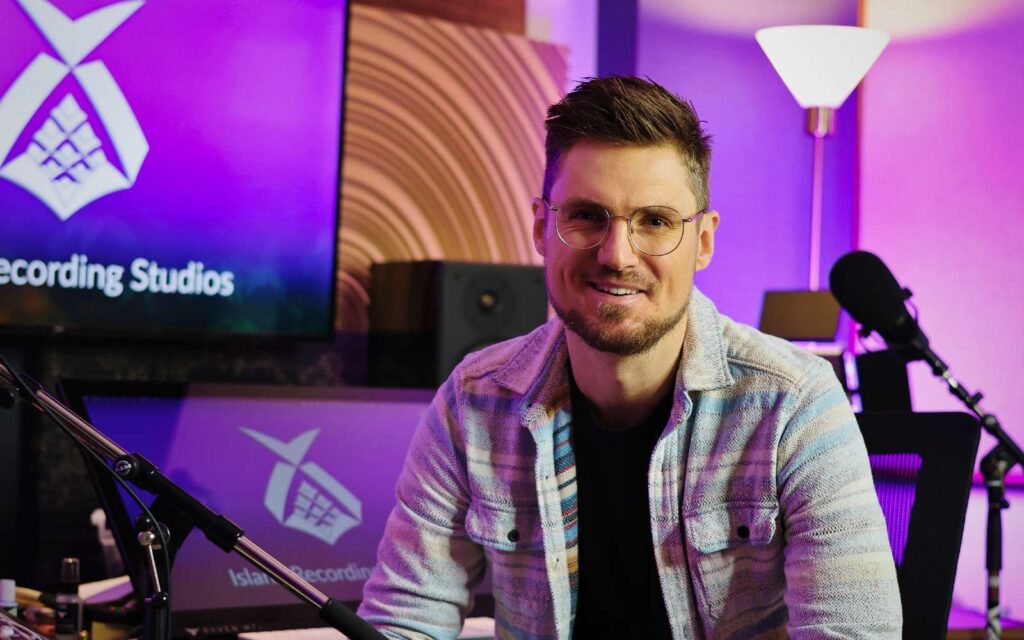
I think it was in 2009 or 2010 when a band asked me to record them. I thought “why not I’ll give it a crack”. And this is really what started it all. Over the next couple of years I did a few projects here and there as I really started to learn the craft and pour hours into reading how famous records were produced, as well as testing stuff out for myself.
Now, funny you should mention my journey as an engineer, because while this was happening the studio I was actually studying structural engineering at uni from 2008-2011. I was lucky enough after uni to land a job with arguably the top structural engineering firm in the world. This was an incredible experience, working with intimidatingly intelligent people everyday and designed $200m buildings around Australia. However, I always knew my heart was in music— “Get a real job!” They said.
At the same time as my structural engineering career started, the studio also started to take off and I started to produce albums that I’m still really happy to listen to today. After a few years working I went part time so that I could fit in more studio time. However, after one year of that I was still way too busy and decided it’s now or never if I’m going to give this music thing a proper crack.
And I haven’t looked back since!
Over the years since starting Island Recording Studios, I think I’ve naturally developed from just the engineer that sets mics up and presses the record button, into the more traditional producer role – playing a hands-on creative part in the majority of projects.
Every year the studio has somehow been even busier than the previous year, and I’ve been able to work with amazing artists from around the world. I firmly believe that there is no end to learning. I absolutely love to continue to learn and grow as both a human and engineer, so love to devour anything that will help in my own journey. The last few years I’ve particularly poured countless hours into learning from the world’s top entrepreneurs and business men and women, which all feeds back in to help shape the studio and subsequently enhance the experience for every artist that walks through our doors.
What can an artist expect when they arrive at Island Studios for the start of their project?
The journey for most projects here starts a while before the artist actually comes in to record. For anything that we’re having a hand in creatively shaping we always sit down with the artist weeks before recording. This helps us to get to know them as a person, and as an artist, to make sure that our visions our aligned and that it is something we can do a great job on. If it’s a genre or style that we don’t enjoy working in (and hence won’t do an excellent job on) then we’ll send them to friends that can help.
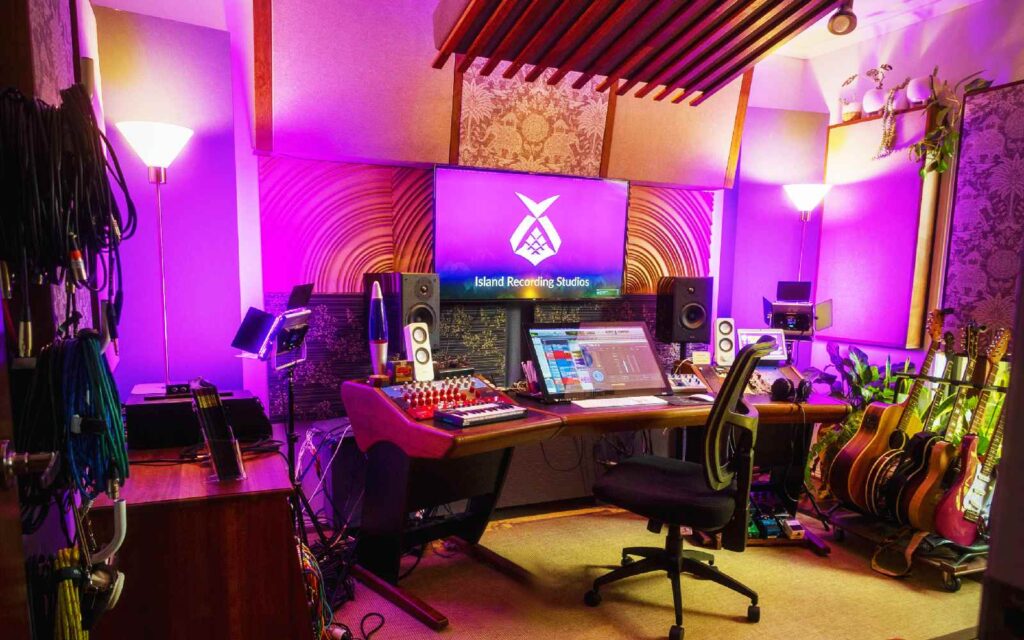
Our goal is for the artist to feel guided through every step of the journey so that they always know what’s happening next, and what each part of the process involves.
Typically, when most artists enter the studio they remark on what a nice setup it is. We’ve tried to create a space that feels inviting, warm, relaxed, and conducive to creativity. And luckily – this is generally the feedback that we receive from artists – so looks like we’ve got it pretty dialled in. Feeling comfortable is paramount to reaching your creative potential, so something we’ve focussed a lot on.
From the initial meeting, we map out what the process will look like for them from the first day of recording through to mastering and beyond. Releasing and promoting music is just as important as the recording process, but something that most artists either A) don’t know where to start, or B) don’t put enough effort into. Therefore, we really try to help them with this after the recording part of the project is done and dusted. More on that later though.
You work and mix in a hybrid workflow that involves both analogue and digital, can you tell us a bit about the studio’s gear?
Yes, we’ve got the best of both worlds in the studio! A bunch of really great outboard gear at our disposal, from the likes of Neve, API, Universal Audio, Phoenix and much more. Plus some very handy integrated digital gear like the Slate Raven mixing touchscreen and Universal Audio’s Apollos and Console application – seriously couldn’t live without that – it makes recording sessions so smooth and monitoring for the artists so, so great. Many artists who have previously recorded elsewhere remark that for the first time they feel super comfortable singing with headphones on as their voice is coming through so clearly.
We’ve also got a great collection of instruments at our fingertips too – guitars, drums, percussion, an amazing Kawai piano (without being too biased it’s probably the best upright I’ve ever played), and my favourite instrument of all – a 1939 Hammond BC organ, complete with a Leslie 147 rotary speaker. The sound that comes out of that organ is phenomenal.
Why do you think distribution and marketing of music is an important skill to have?
If you’re an artist who is looking to take your music career somewhat seriously, then knowing how to get your music out there and into people’s ears is an essential skill. The overall music landscape and music business has changed so much over the last few years, and is altogether different to what it was 20 years ago.
It’s now up to the artists to wear a lot of hats. Marketing and promotion is one of them. A big one! A top hat perhaps. However, it can be difficult to know where to start with it all if you’re a new artist on the scene – or even if you have been around for a while.
That’s why we created The Indie Launchpad – our resource to help artists with the release side of the music game. For a few years, we ran a monthly session for all of our artists in the studio, which was called our Music Distribution and Marketing 101 workshop. We received such positive feedback with people wanting to know more than what we could cover in 90 minutes. This lead to the creation of The Indie Launchpad and saw us develop the 90 minute workshop into a much more in-depth online course.
The goal of it is to take out all of the guesswork when it comes to getting started with releasing and promoting music. It covers topics such as royalties, getting your music on the radio, getting it onto streaming platforms, getting onto Spotify playlists, creating an EPK and more.
This course comes free of charge with most of our recording packages, as we want the artists to do as well as possible!
For those looking to dive deeper, we also offer a one-on-one coaching program.
What kind of work do you find coming through the door at Island Studios?
The vast majority of the work we do here (I’d estimate 60-70%) is Full Production Pop Projects, where we take an artist’s demo all the way through so it’s ready to release, and then also provide assistance for each of these projects in terms of release strategy.
We’ve been lucky enough to produce songs for artists not just in SA, but around Australia and the rest of the world too. In those cases, there are a lot of video chats, and it’s up to the artist to get their vocals recorded somewhere accessible to them and send them over to us.
Nick, who works with us, is a journalist wordsmith extraordinaire. As a result, we offer professionally written Artist Bios and Press Releases to accompany the artist’s production. This is something that I personally haven’t seen any other studios in Australia offer.
After the full production pop projects, most of the remaining chunk of work we do is with indie rock/pop rock/and kind of rock bands, which we also love despite it not being as hands-on as the pop projects.
Finally there is mixing and mastering work that comes in from everywhere – typically in those same genres as above. So we’re always pretty flat out and generally booked a couple of months or more in advance. Very lucky to be in such a great position!
How did The Island Production Academy come about? What can someone expect from The Island Production Academy?
The Island Production Academy has been something I’ve had in my head for quite a while now, and over the past couple of years we’ve run a course called The Art of Music Production a few times for those that are looking to increase their knowledge and skills in all aspects of the production process.
This year, however, we’ve officially launched the Island Production Academy and completed revamped and restructured what we will offer. There are now 3 main offerings, that we will be rolling out throughout the first half of the year.
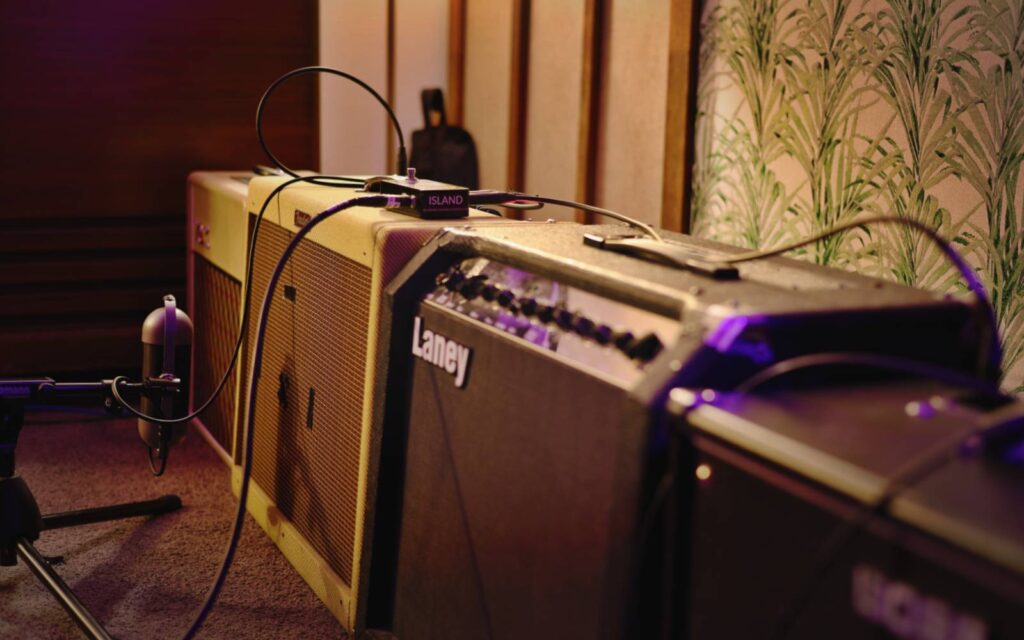
Firstly, our 10-Week Home Recording Bootcamp. The bootcamp is aimed at people who are in the early phases of their music production journey, with the goal being that after 10 weeks they feel comfortable and confident recording and mixing their own music.
We’ve actually just finished our very first bootcamp! The first group we had through were awesome, and it was so rewarding to see how much they learnt and developed over the 10 weeks. The bootcamp comprises a weekly 2-hour in-person workshop, as well as access to the online portal, which has complete lesson videos for everything that’s covered in the workshops, as well as bunch of extension videos and demonstration videos. All students receive lifetime access to those videos so that they can always revisit them when needed.
Along the way there are a bunch of downloads to accompany the lessons – cheatsheets, checklists, worksheets, stems, MIDI files and chord progressions, loops and more. This is to maximise the students’ understanding and development. There’s also an online bootcamp community where students can interact, share their productions, and ask us questions about the work each week.
Great news is that our next bootcamp starting April 29 is already booked out! We’re aiming for a maximum class size of 12 in person, however, there’s also the option of completing the bootcamp solely online for those that can’t make the sessions, and we have a few joining us online for the next one too. Currently, we’ve only advertised the bootcamp in and around Adelaide, however, in the second half of the year we plan to open it up to the rest of Australia for people to complete online. It will still be run in cohorts so that everyone is working through the same topics at the same time so that we can maximise our feedback and guidance along the way.
In the next month or two we plan on launching our Island Production Academy memberships – this will be an online membership with access to a variety of mini courses – each on a specific topic. We are also looking at holding monthly mixing competitions, with gear for prizes. The more people we have join the bigger and fancier the prizes can be! All members will also have access to regular zoom calls where we answer questions and help everyone to keep moving forward in their musical journeys.
Finally, in August, we are looking to launch our one-on-one production coaching, for those that are looking for that high-level support as they dive into the more advanced (and complicated) topics that go beyond the Home Recording Bootcamp.
The Production Academy has been something I’ve been pouring every “spare” minute of my time into over the last 6 months or so. Essentially working another full time job on top of the full time job of normal studio work haha.
So excited to see it all unfold and develop throughout the year!
Continue reading about Island Recording Studios here, or keep up with them on Instagram here.
